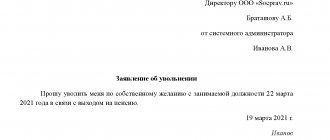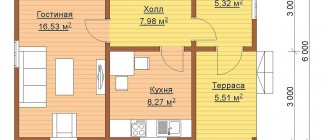The European Court of Human Rights is an international court. Its jurisdiction extends to countries that have ratified the Convention for the Protection of Human Rights and Fundamental Freedoms (hereinafter referred to as the “Convention”).
It follows from this that if the Convention is violated by a country that has ratified it, the victim has the right to appeal the actions of the violating country. Accordingly, many questions arise about how to file a human rights lawsuit.
The ECHR is a very bureaucratic body. Therefore, when filing a complaint in a civil or criminal case, you must strictly comply with the court's requirements for a complaint. Otherwise, it will be considered unacceptable and will not be considered.
It is important to understand that the ECHR is not an element of some national judicial system. The European Court is a completely independent court; it is not one of the stages of appealing a judicial act adopted by the courts of Russia. Therefore, filing a complaint with the ECHR is different from appealing a judicial act to one of the Russian courts.
How did the ECHR appear and why is it needed?
The European Court of Human Rights (ECtHR) is a supranational or, in other words, an international court.
The main purpose of the court is to consider applications from citizens and groups of individuals who claim that any member state of the ECHR has violated human rights provisions, both civil and political. The ECHR was created in 1959 on the basis of the European Convention on Human Rights. Initially, the mechanism for the protection of human rights involved the work of three bodies that monitored the observance of rights: the European Commission of Human Rights, the European Court of Human Rights and the Committee of Ministers of the Council of Europe. However, since November 1998, after Protocol No. 11 came into force, all bodies were replaced by one – the ECHR. It is located in the Human Rights Palace in Strasbourg (France), next to the Council of Europe. Any person can apply to the court, but he must file a complaint in the national language of one of the countries that recognize the jurisdiction of the ECHR.
The jurisdiction of the court was recognized by 47 member states of the Council of Europe. Russia recognized the court's jurisdiction in 1998 . The fact is that, according to the Constitution of the Russian Federation (Article 15), Russia recognizes the supremacy of international law over national law. In accordance with this, Russia began to recognize the main international treaty - the Convention for the Protection of Human Rights and Fundamental Freedoms. The final recognition of jurisdiction was carried out on May 5, 1998, when Federal Law No. 54 (“On the ratification of the Convention for the Protection of Human Rights and Fundamental Freedoms and its Protocols”) of March 30, 1998 came into force in Russia.
After ratification of the Convention, Russia began to participate in the selection of the judiciary. Judges are elected by PACE deputies every nine years.
At the moment, the court has 47 judges - one from each of the countries that have recognized the jurisdiction of the court, including Russia.
As a rule, torture has a specific purpose - police officers are trying to force a person to confess to a crime. Often the victims are people who have nothing to do with this crime and incriminate themselves under torture.
Nizhny Novgorod. Kanavinskoe district police department, 2007.
Sergei Gorshchuk was visiting his aunt in the village of Druzhkovo. He was lying on the sofa when three men in civilian clothes appeared in the room - before going inside, they beat and handcuffed Sergei's friend Mikhail Kostin, who was sitting on a bench in front of the house. The men turned out to be policemen, they took Sergei and Mikhail to the Kanavinskoe district police department of Nizhny Novgorod. There Kostin was beaten until he confessed to the murder and testified against his friend. After this, Sergei was also taken into the office and, when he refused to admit guilt, he was handcuffed to a chair screwed to the floor. He was beaten for several hours, but he did not incriminate himself. Gorshchuk was placed in a pre-trial detention center, where doctors recorded injuries.
Yoshkar-Ola. City outskirts, 2007
. Suren Hovakimyan was buying a card for a friend’s wedding when three men jumped out of the car next to him. They dragged him into the salon, put a bag over his head, took him out of town and began to beat him, asking if he was ready to agree to “their conditions.” When wires were attached to Hovakimyan’s fingers and a current was turned on, he replied that he was ready for anything - but the prosecutor’s office still refused to plead guilty to murder. Hovakimyan was placed in a temporary detention center, from where he was again taken out of the city, thrown into a pit, a car cable was thrown around his neck and they began to choke him; then he signed a confession. Doctors recorded tumors and hematomas on the victim’s forehead, chest and shoulders, abrasions on the chest and a long red bruise on the neck.
Nizhny Novgorod Region. Police department of the village of Ilyinogorsk, 2008
. From Sergei Lyapin, who was detained while he was collecting scrap metal, the police demanded a confession to thefts from garages. Police officers in Ilyinogorsk beat him and tortured him with electric shocks, pouring water on the victim's hands with contacts attached to them for greater effectiveness. The man was allegedly arrested for five days for resisting the police, but a day later Lyapin became ill and was hospitalized. Doctors diagnosed him with multiple injuries and injuries: a concussion, a bruise in the neck area, a bruise in the chest, thermal burns on both hands. The criminal case of thefts, which Lyapin admitted to, was closed due to the reconciliation of the parties.
Orenburg region. Sovetsky District Department of Internal Affairs of Orsk, 2005
. The criminal investigation operative first demanded that the minor Alexander Andreev become an informant, and when he refused, the young man was transported to another police department, where he was beaten, demanding that he write a confession for several thefts from stores. The teenager, who was then about one and a half meters tall, was handcuffed behind his back and forced to sit cross-legged, and then, having tied his arms and legs behind his back with a rope, they hung him on an iron crowbar. After yet another refusal to incriminate himself, Alexander was sent for “revision” and beaten with palms on his ears and with a fist on the back of his head. As a result, he signed a confession to the thefts, but no criminal case was ever brought against him. At the hospital, doctors recorded a concussion in the young man, abrasions of the left brow ridge and bruises of the soft tissues of the head.
Nizhny Novgorod Region. Forest in Balakhninsky district, 2004
. Alexander Novoselov was dragged into a car by unknown people on a square in Nizhny Novgorod and taken to the forest. A white jeep arrived there, from which several more people got out. Threatened with a pistol (the barrel was shoved into Novoselov’s mouth), they beat him, accusing him of an attempt on the life of businessman Oleg Sorokin, who, according to Alexander, was himself among the people who beat him. When Novoselov refused to confess, they put a bag over his head and began to choke him. He wrote a confession after one of the men took out a hunting hatchet and promised to cut off his leg. Doctors recorded multiple bruises and a concussion on him.
Who is complaining to the ECHR?
Russians have become leaders in cases before the ECHR.
The annual number of applications and complaints to the European Court has begun to grow since the early 2000s. The peak occurred in 2011, when the queue of complaints amounted to more than 151 thousand. After this, there was an outflow, and in 2021 the queue was at about 80 thousand complaints.
But the queue does not mean that all reported complaints will be considered on their merits. As a rule, more than 90% of complaints are eliminated because they have no basis for consideration.
Thus, according to the ECHR report for 2021, the court issued a total of 993 decisions in relation to all countries that recognized the jurisdiction of the European Court. At the same time, Russia became the leader in the number of decisions made - 228. All decisions related to violations of the rights of Russians and 222 of them were satisfied.
In 2021, there was a sharp jump in decisions against Russia; thus, at the end of 2015, only 116 cases were considered against our country. Russia’s closest “competitors” are Turkey, Romania and Ukraine (in relation to each of them, ECHR judges issued only 70 to 77 decisions in 2021).
2016 demonstrated another trend: a significant reduction in complaints from Russia.
At the moment (January 2021), 7.8 thousand Russian applications are awaiting consideration by the ECHR (9.8% of the total number of complaints, while a year earlier this figure was 14.2%). The leaders were Ukraine with 18.1 thousand complaints (22.8% of the total number of complaints), Turkey with 12.5 thousand complaints (15.8% of the total number of complaints) and Hungary with 8.9 thousand complaints ( 11.2% of the total number of complaints).
Rules for applying to the European Court of Human Rights
Explanatory note for those wishing to apply to the European Court of Human Rights
I. What cases does the Court deal with?
1. The European Court of Human Rights is an international organization that, only under certain circumstances, can accept complaints from persons who believe that their rights guaranteed by the European Convention on Human Rights have been violated. This Convention is an international treaty by virtue of which most European states have committed themselves to respect a number of fundamental rights. The protected rights are set out directly in the text of the Convention itself, as well as in Protocols No. 1, 4,6 and 7, ratified only by some of the States. You need to familiarize yourself with the attached text of these documents and the reservations to them.
2. If you believe that you are personally and directly the victim of a violation of one or more fundamental rights by any of the States, you may seek relief from the Court.
3. The court has the right to consider only complaints about violations of one or more rights enshrined in the Convention and its Protocols. The court is not a higher appellate authority in relation to domestic courts and does not have the authority to cancel or change their decisions. Likewise, the Court cannot, on your behalf, directly interfere with the activities of the government body whose actions you are complaining about.
4. The complaints which the Court is entitled to consider must be directed against States that have ratified the Convention or the relevant Protocols, as well as relating to events occurring after a certain date. This date depends on which State the complaint is directed against and whether the complaint concerns a violation of rights set out in the Convention or one of the Protocols.
5. The subject of complaints sent to the Court must be events for which the public authorities (legislative, executive, judicial authorities, etc.) of one of the States are responsible. The court does not accept complaints directed against individuals or organizations.
6. Pursuant to the provisions of Article 35 § 1 of the Convention, the Court may only accept applications for consideration after all available domestic remedies have been exhausted and no later than six months after the final decision has been made. The court will not be able to consider applications that do not meet these admissibility requirements.
7. For this reason, it is extremely important that before applying to the Court, you involved all the judicial authorities of the relevant State, with the help of which it was possible to eliminate the violation of your rights. Otherwise, you will have to prove that such remedies would be ineffective. This means that you must first appeal to the national courts, up to the highest court that has jurisdiction over the case. In this case, it is necessary to report to the national judicial authorities, at least in essence, those complaints that you subsequently intend to send to the Court. In this regard, it should be especially noted that the jurisprudence of the Court does not consider the procedure for reviewing judicial decisions that have entered into legal force, provided for by Russian legislation, as an effective remedy.
8. When seeking domestic protection, you must comply with national procedural rules, including statutes of limitations. If, for example, your cassation appeal is rejected due to missing the deadline for appeal, or due to non-compliance with the rules of jurisdiction, or due to violation of the relevant procedures, the Court will not be able to accept your case for consideration.
9. However, if the object of your complaint is a judicial decision, such as a sentence, you do not need to attempt to initiate a review of the case after going through the normal judicial appeal process. Likewise, you are not required to resort to non-judicial procedures, submit requests for pardon or amnesty. Petitions (to Parliament, the Head of State or Government, a minister or the Commissioner for Human Rights) are not included in the list of effective legal remedies to which you must resort.
10. To appeal to the Court, you have a period of six months from the date of the decision by the highest competent government body or court. The six-month period is counted from the moment you or your lawyer receives the final court decision made in the ordinary course of appeal, and not from the moment of subsequent refusals to reopen proceedings in your case, or refusal of pardon, amnesty or other non-judicial actions.
11. The course of the six-month period is interrupted by the receipt by the Court of your first written application, clearly indicating - at least in a brief form - the subject of your complaint, or by the receipt of a completed complaint form. A mere letter requesting information is not sufficient to suspend the six-month period.
II. How to apply to the Court?
12. The official languages of the Court are English and French, but if you prefer, you may address the Registry of the Court in the official language of one of the States that have ratified the Convention.
13. The court does not accept complaints by telephone or email, except in cases where such complaints are duplicated by regular mail. There is also no need for you to visit Strasbourg in person to present the facts of your case orally.
14. Any correspondence relating to your complaint should be sent to the following address:
The Registrar European Court of Human Rights Council of Europe F-67075 STRASBOURG CEDEX FRANCE - FRANCE
15. Upon receipt of your first letter or complaint form, the Secretariat will send you a response indicating that a preliminary file has been opened in your name (the number of which you must indicate in all subsequent correspondence). You may subsequently be asked to provide additional information, documents or clarification regarding the complaint. In turn, the Secretariat cannot provide you with information about the legislation of the State whose actions you are complaining about, or provide advice regarding the application and interpretation of national law.
16. It is in your interests to be attentive to correspondence with the Secretariat. Any delay in response or failure to respond may be construed as your lack of interest in pursuing the complaint further. You must return the completed complaint form by the due date. If within a year you do not receive a response to the Secretariat's letters, your dossier will be destroyed.
17. If you believe that your complaint genuinely concerns a violation of rights guaranteed by the Convention or its Protocols and that it meets the conditions set out above, you should carefully and legibly complete the complaint form, which should be returned no later than eight weeks.
18. Pursuant to the provisions of Rule 47 of the Rules of Court, it is necessary that the text of your complaint reflect the following:
(a) a summary of the facts on which your complaint is based and the merits of the complaint;
(b) an indication of the specific rights guaranteed by the Convention that you believe have been violated;
(c) a list of remedies already invoked;
(d) a list of the official decisions made in your case, indicating the date of each decision, the court or other authority that made the decision, and a summary of the merits of the decision. Attach complete photocopies of these decisions to your application. (The documents will not be returned to you. Therefore, it is in your best interest to submit only copies and not originals to the Court.)
19. Rule 45 of the Rules of Court requires that the application form be signed by you as the applicant or your representative.
20. If you object to the publication of your name, you must make a statement stating the reasons for such a deviation from the general rule of free access to information relating to legal proceedings. The court allows anonymity of proceedings only in exceptional and justified cases.
21. If you wish to apply to the Court through a lawyer or other representative, you must attach to the complaint form a power of attorney authorizing him to act on your behalf. A representative of a legal entity (company, association, etc.) or a group of individuals must confirm his authority to represent the applicant. At the initial complaint stage, your representative (if you have one) does not have to be a lawyer. It is worth noting, however, that at later stages of the proceedings the applicant's representative must, as a general rule, be a lawyer authorized to conduct business in one of the States that have ratified the Convention. The lawyer must at least understand one of the official languages of the Court (English or French).
22. The court does not provide legal assistance to pay for the services of a lawyer for drawing up your initial complaint. At a later stage of the proceedings - after the Court has decided to inform the government of the relevant state about the complaint and request written explanations - you may qualify for free legal aid, provided that you are unable to pay for a lawyer, and if the provision of such assistance is considered necessary for proper consideration of the case.
23. If there are clear impediments to the admissibility of your application, either because the conditions of admissibility set out in Article 35 § 1-3 of the Convention are not met, or because of the jurisprudence relating to the interpretation of the Convention in relation to applications similar to yours, the Registry of the Court will make appropriate arrangements for you notification, and you will have the right not to insist on consideration of the complaint.
24. If you prefer to insist on the consideration of the complaint by the Court, and the formal requirements of Rules 45 and 47 of the Rules of Court are met, your case will be formally registered for consideration. In this case, the Registry will inform you of the permanent registration number of your complaint, in other words, its number in the list of cases scheduled for consideration by the Court.
25. The procedure for considering your case is free. You will be kept informed by the Secretariat about the progress of the matter. Since at the initial stage legal proceedings are carried out in writing, your personal presence in Strasbourg is not required.
Ratification dates
| State | Convention | Protocol 1 | Protocol 4 | Protocol 6 | Protocol 7 |
| Austria | 03.09.1958 | 03.09.1958 | 18.09.1969 | 15.01.1984 | 14.05.1986 |
| Albania | 02.10.1996 | 02.10.1996 | 02.10.1996 | 21.09.2000 | 02.10.1996 |
| Andorra | 22.01.1996 | — | — | 22.01.1996 | — |
| Armenia | — | — | — | — | — |
| Azerbaijan | — | — | — | — | — |
| Belgium | 14.06.1955 | 05.07.1955 | 21.09.1970 | 10.12.1998 | — |
| Bulgaria | 07.09.1992 | 07.09.1992 | 04.11.2000 | 29.09.1999 | 04.11.2000 |
| Great Britain | 08.03.1951 | 03.11.1952 | — | 20.05.1999 | — |
| Hungary | 05.11.1992 | 05.11.1992 | 05.11.1992 | 05.11.1992 | 05.11.1992 |
| Germany | 05.12.1952 | 13.02.1957 | 01.06.1968 | 01.08.1989 | — |
| Greece | 28.11.1974 | 28.11.1974 | — | 08.09.1998 | 29.10.1987 |
| Georgia | 20.05.1999 | — | 13.04.2000 | 13.04.2000 | 13.04.2000 |
| Denmark | 13.04.1953 | 13.04.1953 | 30.09.1964 | 01.12.1983 | 18.08.1988 |
| Ireland | 25.02.1953 | 25.02.1953 | 29.10.1968 | 24.06.1994 | 03.08.2001 |
| Iceland | 29.06.1953 | 29.06.1953 | 16.11.1967 | 22.05.1987 | 22.05.1987 |
| Spain | 04.10.1979 | 27.11.1990 | — | 14.01.1985 | — |
| Italy | 26.10.1955 | 26.10.1955 | 27.05.1982 | 29.12.1988 | 07.09.1991 |
| Cyprus | 06.10.1962 | 06.10.1962 | 03.10.1989 | 19.01.2000 | — |
| Latvia | 27.06.1997 | 27.06.1997 | 27.06.1997 | 07.05.1999 | 27.06.1997 |
| Lithuania | 20.06.1995 | 24.05.1996 | 20.06.1995 | 08.07.1999 | 20.06.1995 |
| Liechtenstein | 08.09.1982 | 14.11.1995 | — | 15.11.1990 | — |
| Luxembourg | 03.09.1953 | 03.09.1953 | 02.05.1968 | 19.02.1985 | 19.04.1989 |
| FYR Macedonia | 10.04.1997 | 10.04.1997 | 10.04.1997 | 10.04.1997 | 10.04.1997 |
| Malta | 23.01.1967 | 23.01.1967 | — | 26.03.1991 | — |
| Moldova | 12.09.1997 | 12.09.1997 | 12.09.1997 | 12.09.1997 | 12.09.1997 |
| Netherlands | 31.08.1954 | 31.08.1954 | 23.06.1982 | 25.04.1986 | — |
| Norway | 15.01.1952 | 18.12.1952 | 12.06.1964 | 25.10.1988 | 25.10.1988 |
| Poland | 19.01.1993 | 10.10.1994 | 10.10.1994 | 30.10.2000 | — |
| Portugal | 09.11.1978 | 09.11.1978 | 09.11.1978 | 02.10.1986 | — |
| Russia | 05.05.1998 | 05.05.1998 | 05.05.1998 | — | 05.05.1998 |
| Romania | 20.06.1994 | 20.06.1994 | 20.06.1994 | 20.06.1994 | 20.06.1994 |
| San Marino | 22.03.1989 | 22.03.1989 | 22.03.1989 | 22.03.1989 | 22.03.1989 |
| Slovakia | 18.03.1992 | 18.03.1992 | 18.03.1992 | 18.03.1992 | 18.03.1992 |
| Slovenia | 28.06.1994 | 28.06.1994 | 28.06.1994 | 28.06.1994 | 28.06.1994 |
| Türkiye | 18.05.1954 | 18.05.1954 | — | — | — |
| Ukraine | 11.09.1997 | 11.09.1997 | 11.09.1997 | 04.04.2000 | 11.09.1997 |
| Finland | 10.05.1990 | 10.05.1990 | 10.05.1990 | 10.05.1990 | 10.05.1990 |
| France | 03.05.1974 | 03.05.1974 | 03.05.1974 | 17.02.1986 | 17.02.1986 |
| Croatia | 05.11.1997 | 05.11.1997 | 05.11.1997 | 05.11.1997 | 05.11.1997 |
| Czech | 18.03.1992 | 18.03.1992 | 18.03.1992 | 18.03.1992 | 18.03.1992 |
| Switzerland | 28.11.1974 | — | — | 13.10.1987 | 24.02.1988 |
| Sweden | 04.02.1952 | 22.06.1953 | 13.06.1964 | 09.02.1984 | 08.11.1985 |
| Estonia | 16.04.1996 | 16.04.1996 | 16.04.1996 | 17.04.1998 | 16.04.1996 |
Reservation made by the Russian Federation upon ratification of the Convention for the Protection of Human Rights and Fundamental Freedoms
“The Russian Federation, in accordance with Article 64 of the Convention, declares that the provisions of paragraphs 3 and 4 of Article 5 do not prevent the application of the following provisions of the legislation of the Russian Federation:
- sanctioned by the second paragraph of paragraph 6 of section two of the Constitution of the Russian Federation of 1993, the temporary application established by part 1 of article 11, part 1 of article 89, articles 90, 92, 96, 96.1, 96.2, 97, 101 and 122 of the Criminal Procedure Code of the RSFSR of October 27, 1960 years, with subsequent changes and additions to the procedure for the arrest, detention and detention of persons suspected of committing a crime;
- based on paragraph 2 of Article 26 of the Law of the Russian Federation “On the Status of Military Personnel” of January 22, 1993, Articles 51-53 and 62 of the Disciplinary Charter of the Armed Forces of the Russian Federation, approved by Decree of the President of the Russian Federation of December 14, 1993 N 2140, establishing arrest with maintenance in the guardhouse as a disciplinary measure imposed extrajudicially on military personnel - soldiers, sailors, sergeants, foremen, warrant officers and midshipmen.
The validity of this clause is limited to the period required to introduce changes into the legislation of the Russian Federation that completely eliminate the inconsistencies of the above provisions with the provisions of the Convention.”
Are all ECHR decisions implemented in full?
The flow of complaints to the ECHR and their consideration does not mean that the court’s decision will be implemented by the Russian side in full.
This is also evidenced by statistics: at the moment, more than 1.5 thousand decisions of the ECHR against Russia have not been implemented. The most significant such case was the unprecedented ruling of the European Court on the complaint of shareholders of the oil company YUKOS against Russia. In 2014, the ECHR ordered more than 1.8 billion euros to be paid to victims. But this decision was never implemented. Moreover, the Constitutional Court of Russia, by its resolution of January 17, 2021, decided that it runs counter to the Constitution of the Russian Federation and cannot be executed. Thus, the YUKOS case has been put to rest - the ECHR decision will definitely no longer be implemented.
This is not the first ruling of the Constitutional Court of the Russian Federation that has refused to recognize the decision of the ECHR. In April 2021, the Constitutional Court issued a resolution dated April 19, 2021 No. 12-P “on resolving the issue of the possibility of execution, in accordance with the Constitution of the Russian Federation, of the ruling of the European Court of Human Rights of July 4, 2013 in the case “Anchugov and Gladkov v. Russia” in connection with a request from the Ministry of Justice of the Russian Federation.”
§ 9. Preparation for the hearing of the case (communication of the case) in the ECHR
If the complaint is not declared inadmissible, then the respondent, represented by the Commissioner of the Russian Federation at the European Court of Human Rights, is notified of your complaint.
The Commissioner is invited to answer the questions asked by the European Court, as well as send his comments and objections on the admissibility and merits of the complaint, as well as the possibility of concluding a settlement agreement. The notification of the Commissioner (in the terminology of the European Court - the Government of the Russian Federation or the High Contracting Party) about your complaint is called “communication”. Notification of the Commissioner occurs in preparation for the adoption of a decision on the merits by the European Court, which occurs after several years (from 2 to 5 years approximately) from the date of application to the Court. However, in cases of priority consideration of a complaint, this period may be less than a year.
After the European Court receives the Commissioner's response, it will forward it to you to file a response Objection. The letter from the European Court will also ask you to submit your demands for fair compensation. Thus, you will have to send to the European Court within the time specified in the letter (usually 6-8 weeks):
1. memorandum, which must contain
- a description of the factual side of the case, if it differs from the version prepared by the Secretariat of the European Court or additions to the facts stated by it or an indication that you consider its presentation correct;
- applicable domestic legislation and judicial practice, if necessary;
- answer to each question of the European Court;
- objections regarding the defendant's opinion,
- other.
2. claims for compensation. Compensation includes compensation for moral and material damage, as well as legal costs incurred, both for proceedings in the European Court and for national procedures.
These documents must be in English or French. As stated in the Rules of the European Court, “unless the President of the Section decides otherwise.” Therefore, following the logic of the rules for considering the case, in order for you to continue correspondence with the European Court in Russian, you must separately ask for this. I know of cases when the European Court allowed the continuation of the use of the Russian language and vice versa, when it refused to do so.
§ 10. Decision by the European Court
After receiving your response, if the European Court does not send new requests for new information, etc., then it makes a decision on the merits. The decision is made in the form of a separate document and is called a resolution. From the moment the parties receive their last comments on the complaint until the decision is made, it usually takes from a year to 3 years.
In its ruling, the European Court may partially or fully recognize violations of the rights that you considered violated. The same applies to the required monetary amounts of just compensation. The resolution comes into force within 3 months. During this time, at your request or at the request of the defendant, the case may be referred to the Grand Chamber of the European Court. This happens very rarely, less than 1% of requests to transfer a case are granted.
Why do our fellow citizens go to the ECHR?
The answer is obvious: in Russia, indeed, there are violations of human rights at various levels, including in the penitentiary system.
A considerable part of complaints comes to the ECHR from prisoners and arrested persons. Often, decisions of the European Court are used for broad public discussion, attracting the media and the public to the problem of a particular person. Often this is what allows the problem to be resolved in favor of the complainant.
But it happens that ECHR decisions are also used to gain additional points by politicians. It is possible that these are the reasons that motivate oppositionist Alexei Navalny, who has twice recently appealed to the ECHR to protect his rights. For the first time, the European Court found violations of his rights when considering the so-called “Kirovles case,” and the second complaint will be devoted to the Central Election Commission’s refusal to allow the politician to be nominated for the post of President of Russia.
What powers does the ECHR have? How can he help?
If the European Court considers the complaint to be justified, then it makes a decision on Russia to eliminate the violations committed, and, if necessary, awards fair monetary compensation to the injured party.
Thus, the court may make a decision that will entail the restoration of your violated rights. For example, your sentence or the authorities' decision against you may be reviewed or overturned.
In addition, you will be entitled to fair monetary compensation - usually from several hundred to thousands of euros.
Why does the ECHR reject the complaint?
Filing a complaint to the ECHR is a necessary solution for those who believe that their rights have been grossly violated by Russian justice.
In order not to waste time, money and nerves, you need to wisely choose your representatives - lawyers who will help you draw up a complaint. In Russia, many lawyers provide services for preparing applications to the ECHR, but, as the practice of the ECHR shows, more than 90% of complaints are simply declared inadmissible for formal reasons and the court refuses to consider them on the merits.
How to properly file a complaint to the ECHR?
Before filing a complaint, decide whether you will use the services of legal companies or do it yourself.
If you decide to apply on your own. Please note that your failure to comply with even the slightest technical procedures may result in your complaint not being considered. This is the biggest risk, since after a failed attempt it will be impossible to file a second complaint due to past deadlines.
Where to begin?
First you need to go to the official website of the court. Open the form on your computer (not in a browser), fill it out, print it, and attach the necessary documents.
Before filling out, read the Rules of Court (Article 47), which sets out information about what and how should be stated in the complaint.
To avoid making mistakes, use the practical guide prepared by specialists of the European Court and familiarize yourself with the HUDOC database, which contains decisions already made by the ECHR. Perhaps the database will contain ECHR cases and decisions on them on a similar topic.
Below is a video instruction of the entire procedure for filling out the complaint form..
If you did everything correctly and attached copies of documents, then all that remains is to send the complaint to the European Court.
You can send a complaint by mail to:
The RegistrarEuropean Court of Human Rights
Council of Europe
F-67075 Strasbourg cedex
As soon as your complaint is received by the ECHR, it will be checked by employees of the court secretariat.
They will conduct a first superficial analysis - compliance with technical requirements and the availability of data on a possible violation of human rights. If errors are found, the secretariat sends the complaint to the judges, who make a decision on the inadmissibility of the complaint. The complaint verification procedure takes up to a year.
If the complaint is filed correctly, then it is assigned to a certain section of the court and included in the waiting list of cases that will be considered on the merits.
At this time, the court requests a position on the complaint from representatives of the country against which the complaint is filed. Afterwards the case is transferred to the reporting judge. The judge examines the issue and requests the necessary evidence from the parties. Only after this the complaint is considered on its merits. What could be the outcome of the review? Either “reconciliation” of the parties, or making a ruling on the violation of human rights, the so-called judgment .
Who can file a complaint and against whom is it filed?
This is established by Art. 34 of the Convention “Individual complaints”. A complaint can be filed:
- individuals;
- non-governmental organization;
- group of individuals.
In this case, the applicant-individual does not have to be a citizen of the state against which he is filing a complaint.
It is important to remember: when filing a complaint in a criminal or civil case, the defendant is always the state that violated the rights set out in the convention. The ECtHR will not accept a complaint against a company or individual; Only the state can be the defendant.
Only the person whose rights have been violated or his representative can file a complaint. It is impossible to file a complaint about an “abstract” violation of rights. The applicant must be the victim.
Will Russians have the ECHR in 2021?
Considering the increased politicization of a number of cases considered by the ECHR (recently, representatives of Ukraine have been actively filing complaints against Russia), at the end of 2021 information appeared about Russia’s possible withdrawal from the Council of Europe and, as a result, the suspension of its work in the ECHR.
There was even talk of “freezing” contributions to the court budget (the department functions with these funds). This statement, circulated by the federal media, caused a flurry of indignation - after all, Russia's exit will close the opportunity for Russians to file complaints to the ECHR - formally, the court does not have the right to consider a complaint against the actions of a country that does not recognize its jurisdiction. However, at the end of 2021, ECHR judge from Russia Dmitry Dedov assured the public that the question of our country’s withdrawal from the European Court was not yet raised. 2021 will show whether the media's predictions will come true or not.
Unlock access to the private part of Clerk with a Premium subscription. Get hundreds of webinars and online courses, unlimited consultations and other proprietary content for accountants.
Hurry up to subscribe with a 20% discount until October 15, 2021. Read more about “Premium” here.











